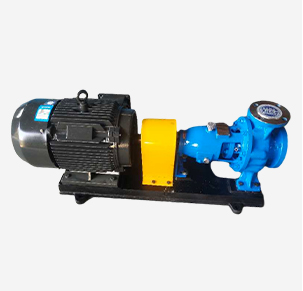Swahili
- Afrikaans
- Albanian
- Amharic
- Arabic
- Armenian
- Azerbaijani
- Basque
- Belarusian
- Bengali
- Bosnian
- Bulgarian
- Catalan
- Cebuano
- Corsican
- Croatian
- Czech
- Danish
- Dutch
- English
- Esperanto
- Estonian
- Finnish
- French
- Frisian
- Galician
- Georgian
- German
- Greek
- Gujarati
- Haitian Creole
- hausa
- hawaiian
- Hebrew
- Hindi
- Miao
- Hungarian
- Icelandic
- igbo
- Indonesian
- irish
- Italian
- Japanese
- Javanese
- Kannada
- kazakh
- Khmer
- Rwandese
- Korean
- Kurdish
- Kyrgyz
- Lao
- Latin
- Latvian
- Lithuanian
- Luxembourgish
- Macedonian
- Malgashi
- Malay
- Malayalam
- Maltese
- Maori
- Marathi
- Mongolian
- Myanmar
- Nepali
- Norwegian
- Norwegian
- Occitan
- Pashto
- Persian
- Polish
- Portuguese
- Punjabi
- Romanian
- Russian
- Samoan
- Scottish Gaelic
- Serbian
- Sesotho
- Shona
- Sindhi
- Sinhala
- Slovak
- Slovenian
- Somali
- Spanish
- Sundanese
- Swahili
- Swedish
- Tagalog
- Tajik
- Tamil
- Tatar
- Telugu
- Thai
- Turkish
- Turkmen
- Ukrainian
- Urdu
- Uighur
- Uzbek
- Vietnamese
- Welsh
- Bantu
- Yiddish
- Yoruba
- Zulu
Telephone: +86 13120555503
Email: frank@cypump.com
Desemba . 06, 2024 11:31 Back to list
hydraulic slurry pump
Understanding Hydraulic Slurry Pumps The Essential Equipment for Efficient Material Handling
In various industrial applications, the handling of slurries—mixtures of solid particles and liquids—presents unique challenges. Hydraulic slurry pumps have emerged as essential equipment for industries such as mining, construction, and wastewater management, offering effective solutions for transporting these thick, viscous fluids. This article explores the key features, benefits, and applications of hydraulic slurry pumps, providing insight into their critical role in modern industry.
What is a Hydraulic Slurry Pump?
A hydraulic slurry pump is specifically designed to move slurries through pipes and systems. Unlike standard pumps that handle clean fluids, slurry pumps are constructed to manage abrasive, corrosive, and dense mixtures. They typically feature robust materials and specialized designs that enhance their durability and efficiency. Hydraulic slurry pumps work by converting hydraulic energy into kinetic energy to create flow and pressure, enabling the movement of slurry over long distances and through complex pipe networks.
Key Features of Hydraulic Slurry Pumps
1. Robust Construction Hydraulic slurry pumps are built to withstand harsh operating environments. They often utilize materials such as high-chrome metal or rubber linings that resist wear and corrosion, ensuring longevity even in aggressive conditions.
2. Versatile Design These pumps come in various designs, such as centrifugal, positive displacement, and submersible types. Each design caters to specific operational requirements, allowing industries to select a pump that matches their slurry characteristics and transportation needs.
3. High Efficiency Hydraulic slurry pumps are engineered for high efficiency in handling thick materials. They maintain a consistent flow rate, reducing energy consumption and operational costs.
4. Self-Priming Capability Many hydraulic slurry pumps are designed to be self-priming, which eliminates the need for external priming systems. This feature enhances operational efficiency and reduces downtime during the startup process.
5. Adjustable Flow Rates and Pressures The ability to adjust flow rates and pressures according to the properties of the slurry being transported is crucial for optimizing system performance. Some hydraulic slurry pumps feature variable frequency drives (VFDs) that allow for real-time adjustments.
hydraulic slurry pump

Advantages of Using Hydraulic Slurry Pumps
1. Cost-Effective Transportation Hydraulic slurry pumps facilitate the cost-effective transportation of slurries over long distances, making them invaluable in mining and mineral processing operations.
2. Reduced Environmental Impact By effectively managing slurries, these pumps help reduce the environmental impact typically associated with waste management and mining activities, minimizing the risk of spills and contamination.
3. Enhanced Operational Safety Hydraulic slurry pumps are designed with safety features to protect operators and equipment. Their efficiency in handling tough materials can also lead to fewer accidents and injuries in industrial settings.
4. Improved System Reliability With their robust construction and ability to handle variable slurry compositions, hydraulic slurry pumps contribute to improved system reliability and reduced maintenance needs. This reliability translates to minimized downtime and increased productivity.
Applications of Hydraulic Slurry Pumps
Hydraulic slurry pumps find applications across a range of industries
- Mining Used for transporting ore, tailings, and other slurries within mining operations. - Construction Involved in dewatering processes and transporting concrete mixtures. - Wastewater Treatment Essential for handling sludge and other waste materials in treatment facilities. - Pulp and Paper Used to move slurry made from wood pulp during the production process. - Chemical Processing Play a role in moving thick process materials and slurries involved in chemical production.
Conclusion
Hydraulic slurry pumps are indispensable tools in managing the challenges associated with transporting slurries in various industrial sectors. Their robust design, efficiency, and versatility make them a pivotal component in optimizing processes, reducing environmental impact, and enhancing safety. As industries continue to evolve, the demand for reliable hydraulic slurry pumps will undoubtedly grow, driving innovation and improvement in slurry handling technologies. Understanding their features and applications is crucial for operators seeking to enhance their operational efficiency and productivity in today’s competitive landscape.
-
Heavy-Duty Mining Sludge Pumps - Wear-Resistant Slurry Handling
NewsAug.02,2025
-
Horizontal Split Case Pump with GPT-4 Turbo | High Efficiency
NewsAug.01,2025
-
ISG Series Pipeline Pump - Chi Yuan Pumps | High Efficiency, Durable Design
NewsAug.01,2025
-
Advanced Flue Gas Desulfurization Pump with GPT-4 Turbo | Durable & Efficient
NewsJul.31,2025
-
ISG Series Vertical Pipeline Pump - Chi Yuan Pumps | Advanced Hydraulic Design&Durable Construction
NewsJul.31,2025
-
ISG Series Vertical Pipeline Pump - Chi Yuan Pumps | Energy Efficient & Low Noise
NewsJul.31,2025










